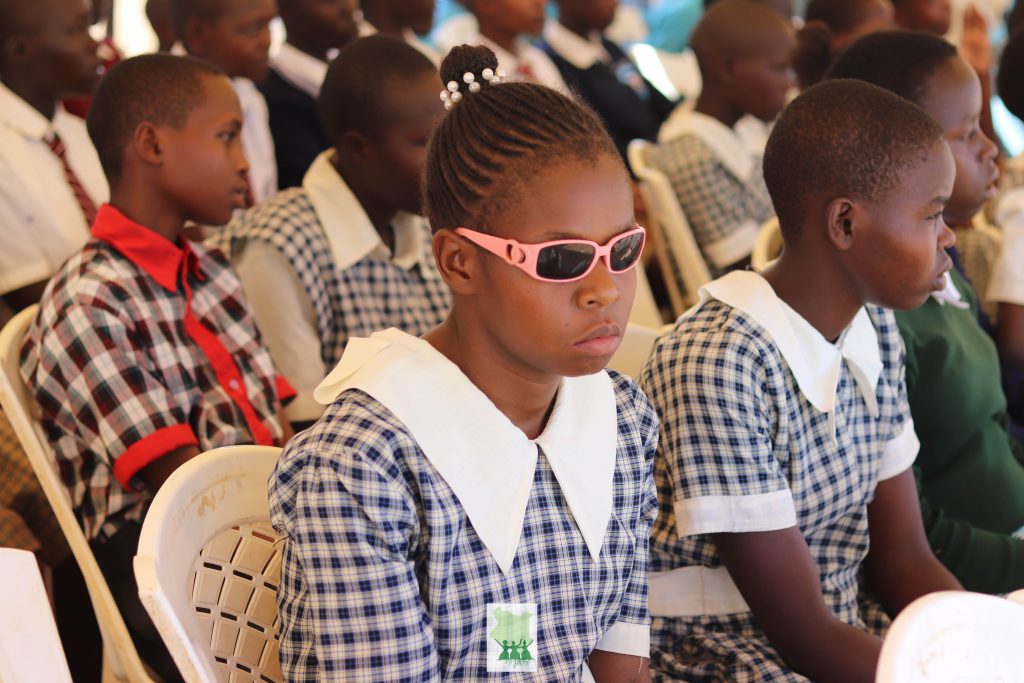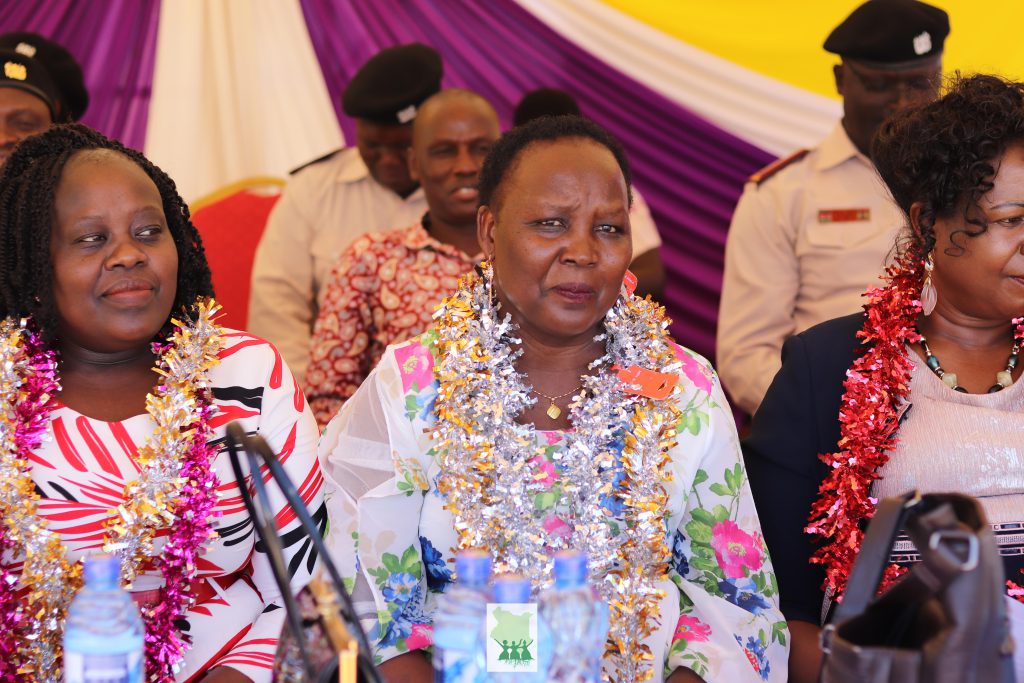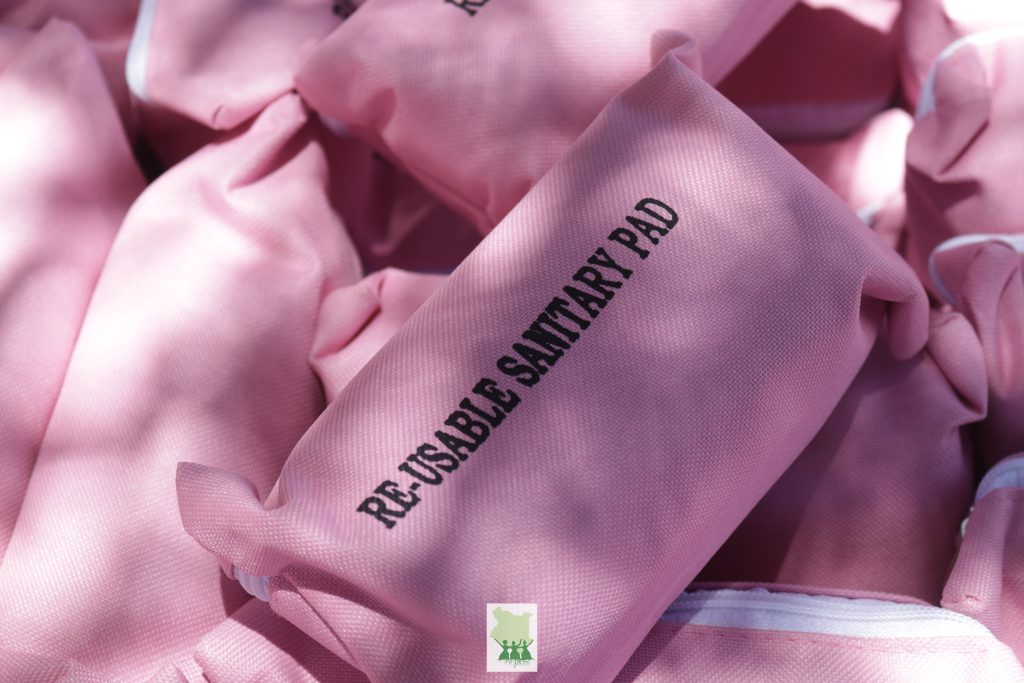BREAKING TABOO: BARINGO SOUTH FREEPAD INITIATIVE TACKLES PERIOD POVERTY

The Constitution of Kenya guarantees that every person has the right to the highest attainable standard of health. This includes the right to reproductive health care and reasonable standards of sanitation. Kenya also has a national Menstrual Hygiene Management Policy, but many women and girls still lack access to safe and hygienic menstrual products, services and facilities.
Research indicates that in Baringo South, 65% of women and girls are unable to afford or access sanitary pads. This is one of the reasons our Baringo South representative, Rosa Kimosop Kamuren, came up with the Freepad Project. Many women in the area have to resort to using crude materials to stem their menstrual flows. These include anything from ashes, cow dung, leaves, newspapers, socks, old mattresses cut in rags, goat hides, and even stuffed chicken feathers. Some of these materials are even shared, which increases the risk of infection. Girls who don’t have access to these crude materials or would prefer not to use them resort to missing school when they’re menstruating. Roughly one million girls miss school every month due to lacking sanitary towels.

Period Poverty
The Freepad Project will target 2000 adolescents of school-going age in the most vulnerable areas of the Constituency. The aim of the project is to donate reusable sanitary towels to the girls. The reusable pads were preferred as they are long-lasting, with a pack of four pads able to serve one girl for even four years. Additionally, reduced waste disposal is good for the environment. Girls who have had to drop out of school will also not be left behind. Mrs Kamuren is working with a team of community mobilizers, community health volunteers and locally organised groups so they can also reach the adolescent school dropouts.
With access to sanitary towels, the number of girls who have to resort to exchanging sex for period products will also go down. This will reduce the cycle of exploitation and indignity that these young girls have to go through just to deal with their menstruation. It will also reduce cases of early pregnancies and sexually transmitted infections.
Guests
Other NALSA(K) members accompanied Mrs Kamuren at the project launch on March 30, 2023, asserting our motto of unity in diversity by being apolitical, multicultural, and non-partisan. These were Mrs Felistus Tonui (Kuresoi South constituency), Mrs Caroline Makilap (Baringo North constituency), Mrs Florence Arama (Nakuru Town west constituency), and Mrs Mary Chebor (Rongai constituency).
“As a mother and a health expert, I believe that menstrual hygiene is part of health hygiene and one of the most fundamental issues concerning reproductive health. For me, every girl should have the right to such menstrual services and information that helps them maintain their dignity and well-being during their menstruation period. ‘ Said Mrs Kamuren, adding, “My wish is that it makes a difference in someone out there and enables her to reach her full potential in education and enjoy the benefits and opportunities that come with it.”
The chief guest thanked all in attendance and the project sponsor, Proudly Kenyan. Proudly Kenyan has been collaborating with NALSA-K on a series of projects, the first being at Kaloleni constituency and further away in Turkana Central within 13 months. Proudly Kenyan promotes local products through branding and conducts social and outreach programs in Kenyan communities.
Mrs Florence Arama expounded, “We stand for unity in diversity. We stand to unite and support our spouses because educating a girl is educating the whole community”.

(Centre) Baringo South Representative, Mrs Rosa Kimosop Kamuren, the chief guest during the freepad project launch.
Shame and Stigma
Baringo South is a region that encompasses a number of ethnic groups. In many of these groups, menstruation is seen as a shameful topic, and it is shameful to discuss it openly. These cultural taboos have led to the rise of myths and misconceptions surrounding menstruation. The Freepad Project hopes to counter the spread of these misconceptions by educating both adolescent boys and girls on menstruation. Breaking the stigma and silence around the topic will go a long way in ensuring girls and women get the support they need to manage their menstrual hygiene better.
Mrs Kamuren’s project will also see stakeholders in the community, such as teachers, local public health workers, and community mobilisers, receive training so they can continue to empower adolescents on safe menstrual health management.

Conclusion
Menstrual health and menstrual hygiene management tie into several Sustainable Development Goals (SDGs), including good health and well-being (SDG 3), gender equality (SDG 5), and reduced inequalities (SDG 10). The Freepad Project is a great initiative that will present a solution to several challenges facing menstruating girls from vulnerable communities.
By Sophia Wanyonyi and Brian Anyanzwa
Photos courtesy of Mrs Rosa Kimosop Kamuren
